When your recipe calls for ground cloves but you only have whole cloves (or vice versa), knowing the exact substitution ratio is crucial. The simple answer: 1 whole clove equals approximately 1/4 teaspoon of ground cloves. But the real difference goes beyond measurement—it affects flavor intensity, cooking time, and dish outcome. This guide explains exactly when to use each form, precise substitution methods, and practical storage tips every home cook needs.
Table of Contents
- What Are Whole Cloves? Understanding the Basics
- What Are Ground Cloves? Understanding the Basics
- Practical Differences: When to Use Each Form
- Exact Substitution Guide (With Measurements)
- Storage Tips for Maximum Freshness
- Regional Cooking Techniques
- How to Grind Whole Cloves Properly
- When Substitutions Work Best
- Frequently Asked Questions
What Are Whole Cloves? Understanding the Basics
Whole cloves are the dried flower buds of the clove tree. Their natural shape and structure help preserve flavor compounds longer than ground cloves. When recipes call for whole cloves, it's usually because they'll be removed later or used in long-cooking dishes where gradual flavor release matters.
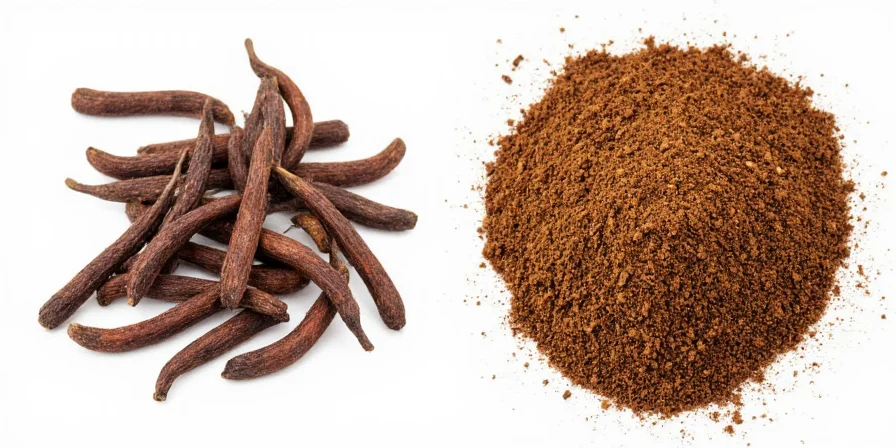
Chefs often stud whole cloves into onions or citrus fruits for soups and stews. This technique allows flavor to infuse gradually without becoming overpowering. Whole cloves work best in dishes that cook for more than 20 minutes, like braises, stocks, or mulled beverages.
What Are Ground Cloves? Understanding the Basics
Ground cloves are simply whole cloves that have been pulverized into powder. This form releases flavor immediately, making it perfect for baked goods and quick-cooking recipes. Because the flavor is more concentrated and immediate, it's easy to use too much ground cloves.

When a recipe specifies ground cloves, it's usually for even distribution throughout the dish. Ground cloves work best in cookies, cakes, and other baked goods where uniform spice distribution matters. They're also ideal for spice blends like pumpkin pie spice or garam masala.
Practical Differences: When to Use Each Form
| Characteristic | Whole Cloves | Ground Cloves |
|---|---|---|
| Best For | Long-cooking dishes (stews, stocks, mulled wine) | Baked goods, quick-cooking recipes |
| Flavor Release | Gradual (good for slow infusion) | Immediate (can become overpowering) |
| Measurement | Count individually | Measured by teaspoon |
| When to Add | Early in cooking process | Late in cooking or at beginning for baking |
| Storage Life | 2-3 years when stored properly | 6-12 months |
The key difference isn't just convenience—it's about how the spice interacts with your dish. Whole cloves work like time-release capsules, while ground cloves deliver immediate flavor impact. Traditional recipes specify the form for a reason: mulled wine benefits from whole cloves' gradual diffusion, while gingerbread needs ground cloves for even distribution.
Exact Substitution Guide (With Measurements)
When substituting between forms, precision matters. The standard conversion is:
- 1 whole clove = 1/4 teaspoon ground cloves
- 1 teaspoon ground cloves = 4 whole cloves
This ratio works for most recipes, but keep these tips in mind:
- When substituting whole for ground in baking, use slightly less (3 whole cloves instead of 4) since whole cloves release flavor more slowly
- For long-cooking dishes, you can use the standard ratio since whole cloves have time to fully release flavor
- Never substitute by volume without adjusting—this causes overpowering clove flavor
- For best results, toast whole cloves before grinding for enhanced flavor
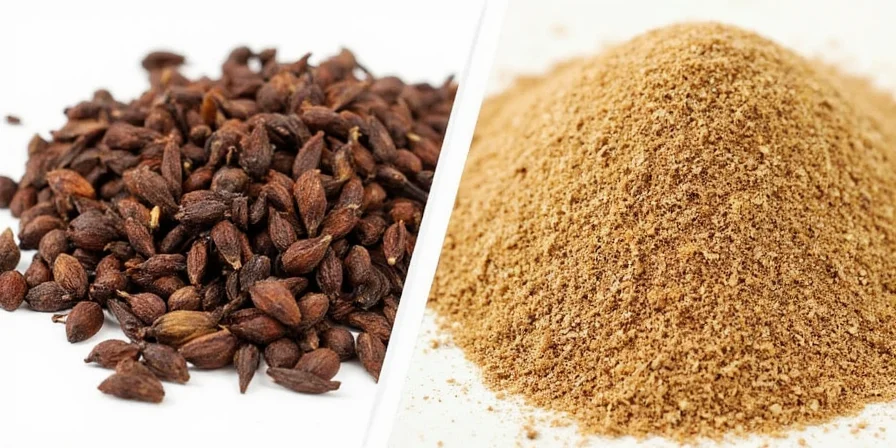
Storage Tips for Maximum Freshness
Proper storage extends shelf life and preserves flavor:
- Whole cloves: Store in an airtight container away from light and heat. Properly stored, they maintain potency for 2-3 years.
- Ground cloves: Keep in a cool, dark place. Ground spices lose potency faster—use within 6-12 months for best flavor.
- Freezing option: For long-term storage, freeze both forms in airtight containers (whole cloves last up to 3 years, ground up to 2 years when frozen).
- Freshness test: Rub a small amount between your fingers. If you can't smell a strong aroma, it's time to replace your cloves.
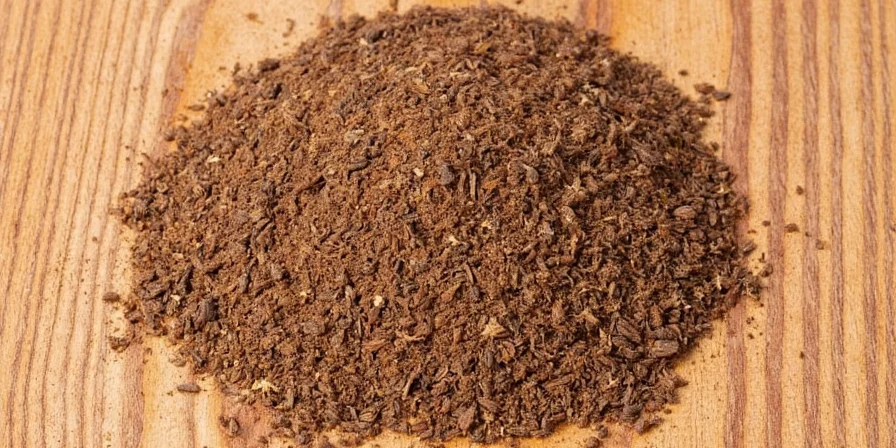
Regional Cooking Techniques
Different cuisines use cloves in distinctive ways:
- Indian cooking: Whole cloves added to rice dishes like biryani for subtle background flavor
- Middle Eastern dishes: Ground cloves in spice blends for meat rubs and stews
- German baking: Ground cloves in traditional Christmas cookies like lebkuchen
- Caribbean cuisine: Whole cloves used in jerk seasoning and pickling solutions
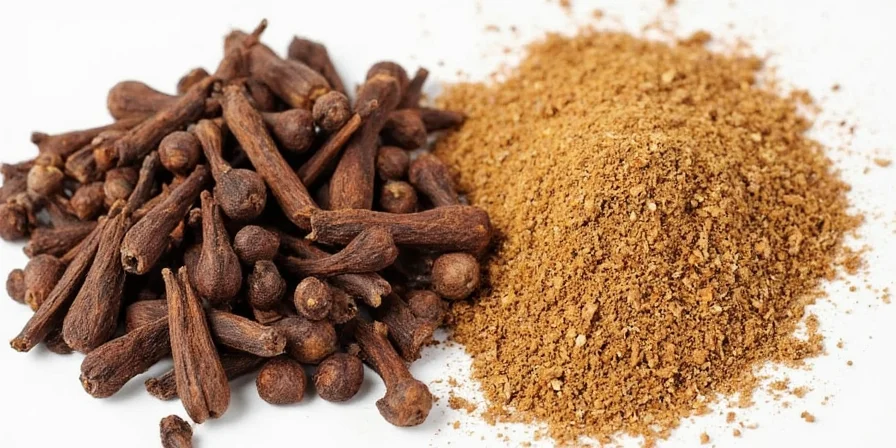
How to Grind Whole Cloves Properly
For the freshest ground cloves:
- Use a dedicated coffee grinder or spice mill for best results
- Grind only what you need—freshly ground cloves have significantly better flavor
- For stronger flavor, toast whole cloves in a dry pan for 1-2 minutes before grinding
- Add a pinch of rice while grinding to prevent clumping and absorb excess oil
- Store freshly ground cloves in an airtight container immediately after grinding
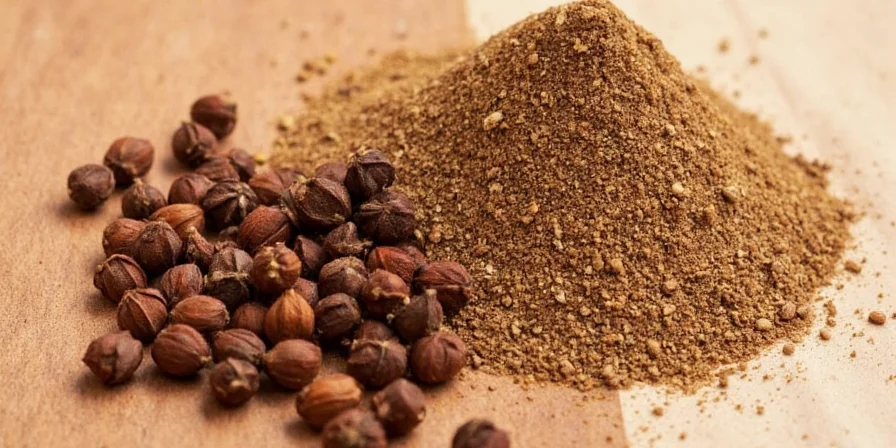
When Substitutions Work Best
Not all substitutions work equally well:
- Use whole cloves when cooking duration exceeds 20 minutes or when precise flavor timing matters
- Choose ground cloves for baking or recipes under 15 minutes where uniform distribution is critical
- For mulled wine and similar beverages, whole cloves are preferable—they're easier to remove and provide gradual flavor release
- In baking, ground cloves distribute more evenly, but whole cloves can be used if finely ground just before use
The quality of your cloves matters most—look for plump, dark brown buds with visible oil when purchasing whole cloves. For ground cloves, check for a strong aroma and vibrant color. Properly stored, both forms can enhance your cooking when used correctly.
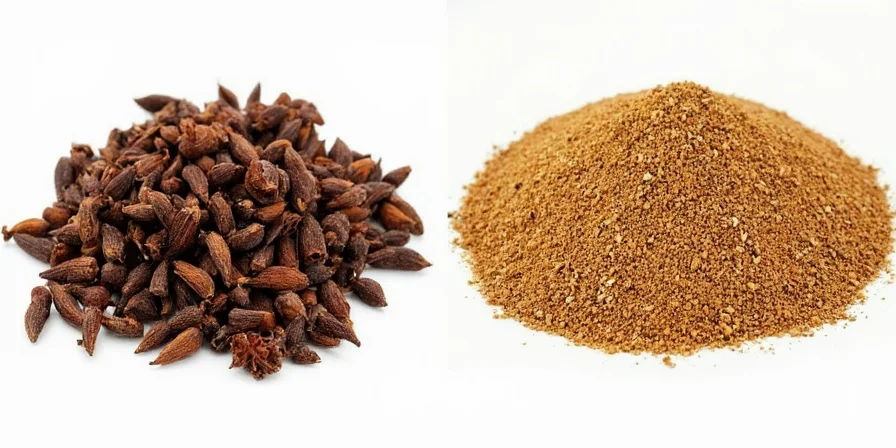
Frequently Asked Questions
Understanding the differences between whole and ground cloves helps you make better cooking decisions. Whole cloves work best for long-cooking dishes where gradual flavor release matters, while ground cloves provide immediate, even distribution for baking and quick recipes. Remember the simple substitution ratio—1 whole clove equals 1/4 teaspoon ground cloves—and store your spices properly to maintain maximum flavor. With these practical tips, you can confidently use either form to enhance your cooking.

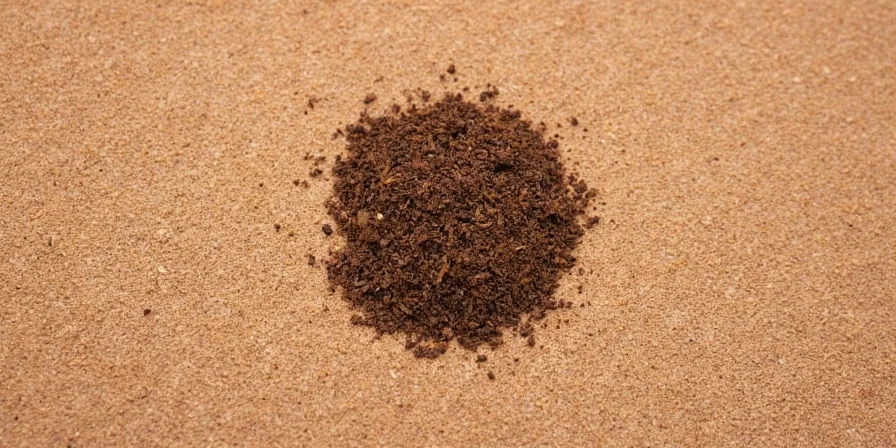









 浙公网安备
33010002000092号
浙公网安备
33010002000092号 浙B2-20120091-4
浙B2-20120091-4